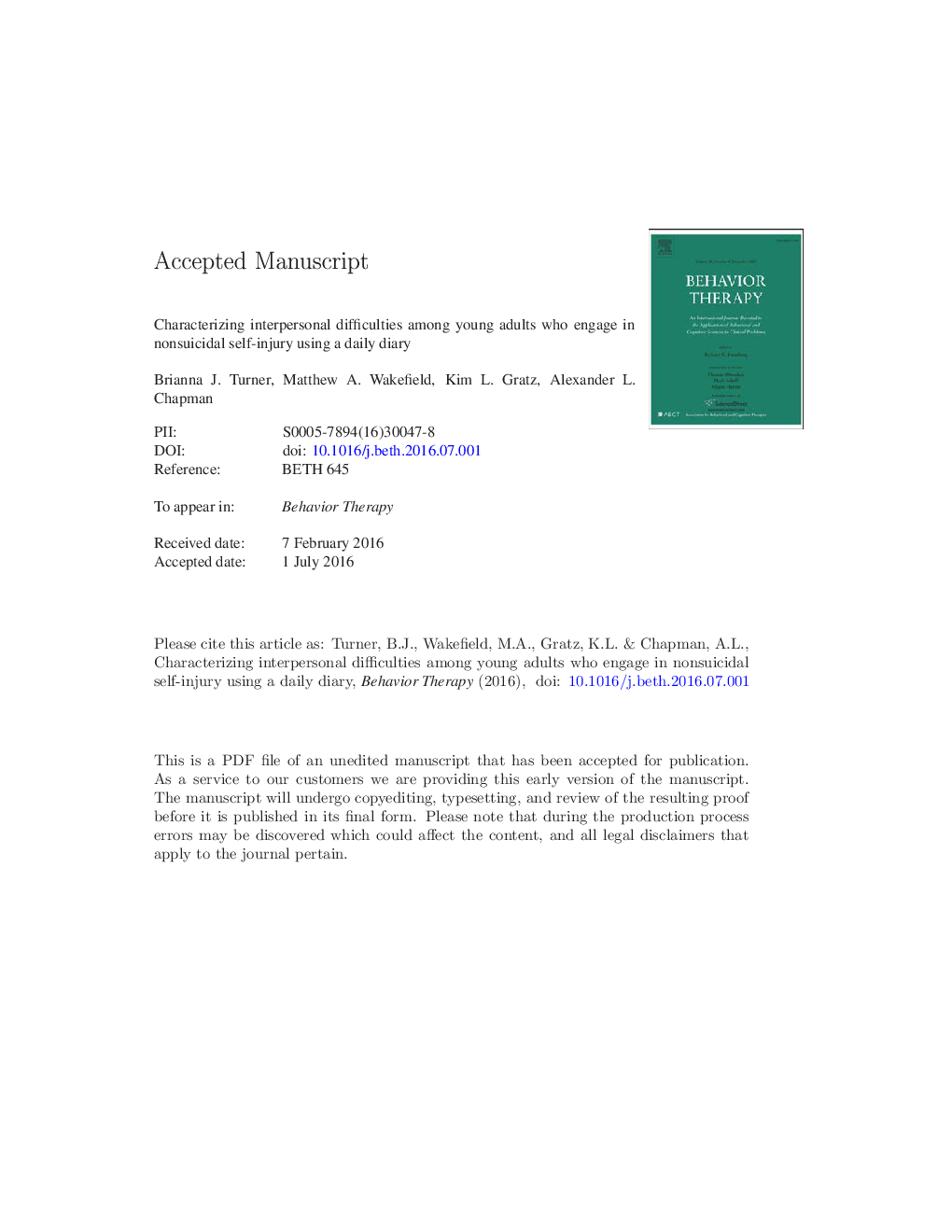ترجمه فارسی عنوان مقاله
مشخص نمودن مشکلات بین فردی در میان جوانان که در معرض آسیب های ناخوشایند خود با استفاده از یک روزنامه ی روزانه
عنوان انگلیسی
Characterizing Interpersonal Difficulties Among Young Adults Who Engage in Nonsuicidal Self-Injury Using a Daily Diary
| کد مقاله | سال انتشار | تعداد صفحات مقاله انگلیسی |
|---|---|---|
| 131919 | 2017 | 42 صفحه PDF |
منبع

Publisher : Elsevier - Science Direct (الزویر - ساینس دایرکت)
Journal : Behavior Therapy, Volume 48, Issue 3, May 2017, Pages 366-379
ترجمه کلمات کلیدی
خود آسیب ناسازگاری خود آسیب رساندن، حمایت اجتماعی، نمونه برداری تجربه دفتر خاطرات روزانه
کلمات کلیدی انگلیسی
nonsuicidal self-injury; self-harm; social support; experience sampling; daily diary;

